Ep. 87: Sara Eckhouse – Executive Director, FoodShot Global ||
–
On episode 87 of Sourcing Matters we welcome the Executive Director of FoodShot Global – Sara Eckhouse. Launched in Fall of 2018, FoodShot Global is an investment platform aimed at accelerating food system transformation through an annual challenge – a call for “Moonshots for Better Food” that will create a healthier, more sustainable, and more equitable food system worldwide. FoodShot is a global consortium of world-class partners, including mission-aligned venture funds, banks, corporations, universities, and foundations. Together FoodShot will award up to $10 million in equity and up to $20 million in debt funding to innovative businesses.
.
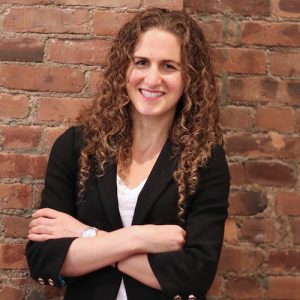 As Senior Advisor to Secretary Tom Vilsack at the U.S. Department of Agriculture, Sara Eckhouse focused on local and regional food systems, organic agriculture, and healthy food access. Sara launched and managed programs to support sustainable agriculture, and she has firsthand knowledge of the opportunities and challenges of combining sustainability with profitability in food value chains.
As Senior Advisor to Secretary Tom Vilsack at the U.S. Department of Agriculture, Sara Eckhouse focused on local and regional food systems, organic agriculture, and healthy food access. Sara launched and managed programs to support sustainable agriculture, and she has firsthand knowledge of the opportunities and challenges of combining sustainability with profitability in food value chains.
.
During our 45 minute discussion we review the goals and objectives of this innovative financing forum. We learn of some of the recipients of funding, and of the Foodshot Groundbreaker award – a prize-pool of $500,000 in philanthropic capital awarded to researchers, social entrepreneurs and advocates in the regenerative food space. We hear why Sara decided to take on this role at Foodshot Global after being an Obama Administration political appointee who for five years influenced US product differentiation.
.
Joining as cohost is Jay Vilar – founder, and a practitioner at ‘Nourish’ – a bespoke consulting company with a mission to educate, teach, and train people on the benefits of using food to heal your body and optimize your health. Located in Boston and Washington, DC – Jay has always been on the forefront of using optimal health techniques, and bio-hacking his nutrition to achieve remarkable results in his career.
.
Tunein to hear what it takes to make food and its production the next moonshot to save the planet.
–
co-host:
Jay Vilar
- Founder of Nourish
- A focus on Nutritional Therapy
- Rodale Institute Fellow
- Host of ‘listen to your mother’ show


 Using adaptive grazing is one important strategy to increase the soil health of our public grasslands and rangelands. For episode 85 of Sourcing Matters, consultant Greg Horner discusses his recent work interviewing innovative public land managers across the US about their use of adaptive grazing as a tool to improve soil health, restore ecosystem function, and increase biodiversity. While these agency staff are increasing soil health, they are also increasing soil carbon and making the land they manage more resilient to climate change.
Using adaptive grazing is one important strategy to increase the soil health of our public grasslands and rangelands. For episode 85 of Sourcing Matters, consultant Greg Horner discusses his recent work interviewing innovative public land managers across the US about their use of adaptive grazing as a tool to improve soil health, restore ecosystem function, and increase biodiversity. While these agency staff are increasing soil health, they are also increasing soil carbon and making the land they manage more resilient to climate change.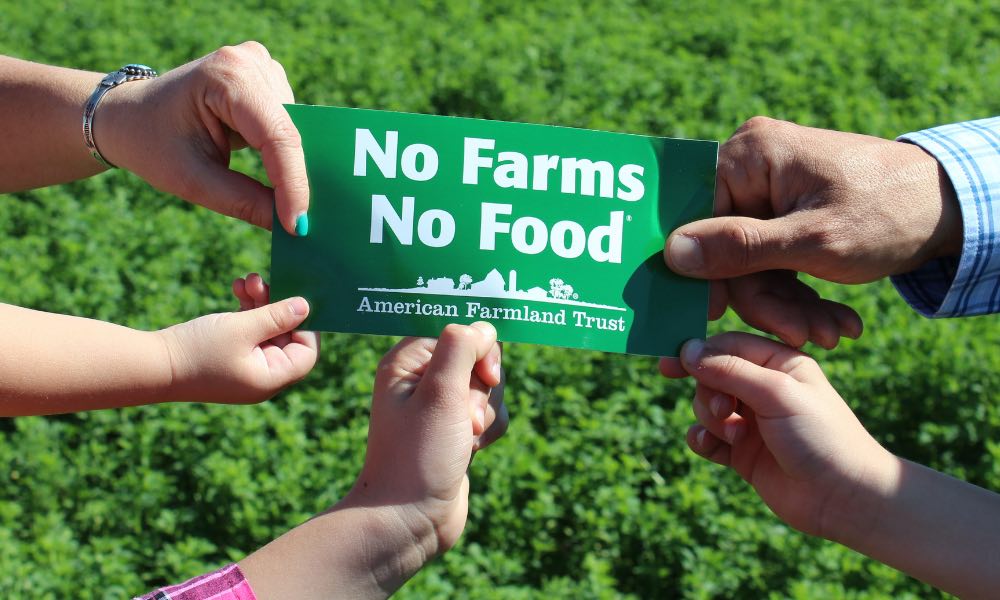
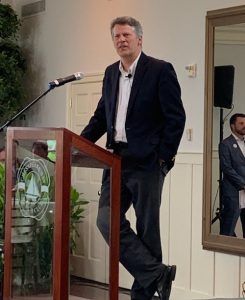 John Piotti joined American Farmland Trust as president and CEO in July 2016, bringing more than 25 years of executive management and public policy experience to the organization. Prior, John served as president and CEO of Maine Farmland Trust for 10 years. Under his leadership, Maine Farmland Trust became an award-winning statewide nonprofit organization, helping over 500 Maine farms remain viable. Piotti has earned a reputation as a nonpartisan problem-solver; as a Statesman, an Eisenhower Fellow – and – as a leader in future food that has helped stabilize a regional dairy industry, and procure funding to protect working waterfronts & our natural lands. John holds three degrees from the MIT, in engineering, public policy, and management.
John Piotti joined American Farmland Trust as president and CEO in July 2016, bringing more than 25 years of executive management and public policy experience to the organization. Prior, John served as president and CEO of Maine Farmland Trust for 10 years. Under his leadership, Maine Farmland Trust became an award-winning statewide nonprofit organization, helping over 500 Maine farms remain viable. Piotti has earned a reputation as a nonpartisan problem-solver; as a Statesman, an Eisenhower Fellow – and – as a leader in future food that has helped stabilize a regional dairy industry, and procure funding to protect working waterfronts & our natural lands. John holds three degrees from the MIT, in engineering, public policy, and management.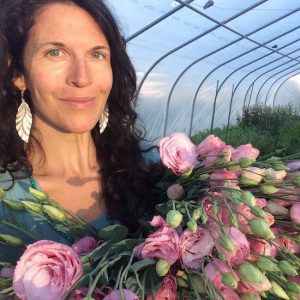 Stone Barns Center for Food and Agriculture was developed by David Rockefeller and dedicated to the memory of his wife, Peggy Rockefeller. The Stone Barns Center’s mission is to demonstrate, teach and promote sustainable, community-based food production. Open to visitors of all ages but with an emphasis on K-12 education, the Center offers a unique experience: a chance to learn about farming firsthand on a real working farm within a 30-minute drive of New York City. Livestock, chickens, vegetables, gardens, greenhouses a learning facility and cultural center demonstrate to the public the advantages of local, community-based farming and environmentally sensitive agricultural practices. The Center is also home to Blue Hill at Stone Barns, a four star restaurant that offers guests a taste of the farm and of the Hudson Valley.
Stone Barns Center for Food and Agriculture was developed by David Rockefeller and dedicated to the memory of his wife, Peggy Rockefeller. The Stone Barns Center’s mission is to demonstrate, teach and promote sustainable, community-based food production. Open to visitors of all ages but with an emphasis on K-12 education, the Center offers a unique experience: a chance to learn about farming firsthand on a real working farm within a 30-minute drive of New York City. Livestock, chickens, vegetables, gardens, greenhouses a learning facility and cultural center demonstrate to the public the advantages of local, community-based farming and environmentally sensitive agricultural practices. The Center is also home to Blue Hill at Stone Barns, a four star restaurant that offers guests a taste of the farm and of the Hudson Valley.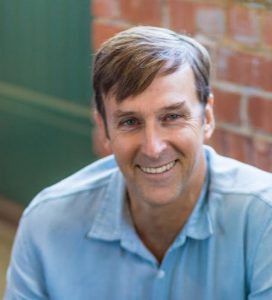 John Roulac started natural and superfoods brand Nutiva in 1999 because of his deeply held belief that it is his purpose to challenge the industrial food model and create a better food system to nourish people, communities, and our planet. Through his leadership, Nutiva has become one of the fastest-growing superfoods company in the world. Nutiva has been named one of Inc. Magazine’s fastest-growing private companies in America for seven years in a row – with sales topping $100mm in 2015.
John Roulac started natural and superfoods brand Nutiva in 1999 because of his deeply held belief that it is his purpose to challenge the industrial food model and create a better food system to nourish people, communities, and our planet. Through his leadership, Nutiva has become one of the fastest-growing superfoods company in the world. Nutiva has been named one of Inc. Magazine’s fastest-growing private companies in America for seven years in a row – with sales topping $100mm in 2015. With three consecutive James Beard nods, Kris Komori is the rock star of Idaho’s chef world. A graduate of the College of Idaho, he sharpened his kitchen skills in Portland before moving to the Gem State. Komori’s creative, constantly changing menus drew fast admiration when State & Lemp opened in 2013. Most recently, he and his team have been developing a new concept and restaurant that will launch in downtown Boise soon.
With three consecutive James Beard nods, Kris Komori is the rock star of Idaho’s chef world. A graduate of the College of Idaho, he sharpened his kitchen skills in Portland before moving to the Gem State. Komori’s creative, constantly changing menus drew fast admiration when State & Lemp opened in 2013. Most recently, he and his team have been developing a new concept and restaurant that will launch in downtown Boise soon.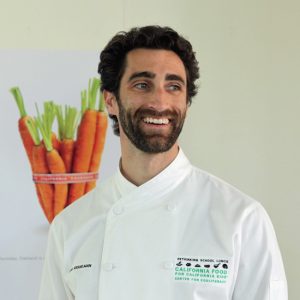 Kesselman’s programs encourage schools to teach and model education for sustainable living – beginning with a good diet. The students that Adam and Vince work with have an opportunity to experience and understand how nature sustains life and how to live accordingly. One such program – California Thursdays – now servers over 334 million school meals a year, which accounts for 33% of the school meals in California. Every meal serves California-grown, for California kids – and of which has focus on food quality and integrity from the source. Economists estimate that every dollar spent on local food can generate up to an additional $1.40 in spending, supporting local economies. So, built upon that – what’s it worth to any of us to provide our kids and our neighbor’s kids preventative healthcare and good consumption habits – things that tend to carry-on for a lifetime.
Kesselman’s programs encourage schools to teach and model education for sustainable living – beginning with a good diet. The students that Adam and Vince work with have an opportunity to experience and understand how nature sustains life and how to live accordingly. One such program – California Thursdays – now servers over 334 million school meals a year, which accounts for 33% of the school meals in California. Every meal serves California-grown, for California kids – and of which has focus on food quality and integrity from the source. Economists estimate that every dollar spent on local food can generate up to an additional $1.40 in spending, supporting local economies. So, built upon that – what’s it worth to any of us to provide our kids and our neighbor’s kids preventative healthcare and good consumption habits – things that tend to carry-on for a lifetime.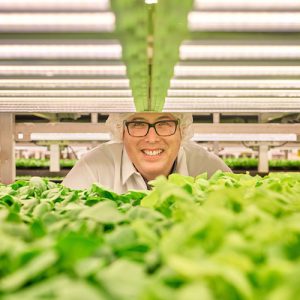 AeroFarms is a leading clean-technology champion, building and operating state-of-the art indoor vertical farms in major cities around the world. Helping set new culinary standards for freshness and flavor, AeroFarms has been recognized as a Global Cleantech 100, Inc.com’s Top 25 Disruptive Companies, Winner of the World Technology Award for Most Impactful Environmental Company, and Finalist for The Circular Awards of The World Economic Forum.
AeroFarms is a leading clean-technology champion, building and operating state-of-the art indoor vertical farms in major cities around the world. Helping set new culinary standards for freshness and flavor, AeroFarms has been recognized as a Global Cleantech 100, Inc.com’s Top 25 Disruptive Companies, Winner of the World Technology Award for Most Impactful Environmental Company, and Finalist for The Circular Awards of The World Economic Forum.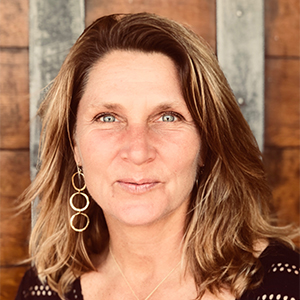 The goal of regenerative organic agriculture is to offer practical solutions to the world’s biggest social and ecological challenges. We’ve learned that we’re beyond the point of sustainability and we need to regenerate the soil and land that supports us, the animals that nourish us, and the farmers and workers that feed us. This has developed into a call to action of the ROA and defined a path forward where we’re all part of the solution.
The goal of regenerative organic agriculture is to offer practical solutions to the world’s biggest social and ecological challenges. We’ve learned that we’re beyond the point of sustainability and we need to regenerate the soil and land that supports us, the animals that nourish us, and the farmers and workers that feed us. This has developed into a call to action of the ROA and defined a path forward where we’re all part of the solution.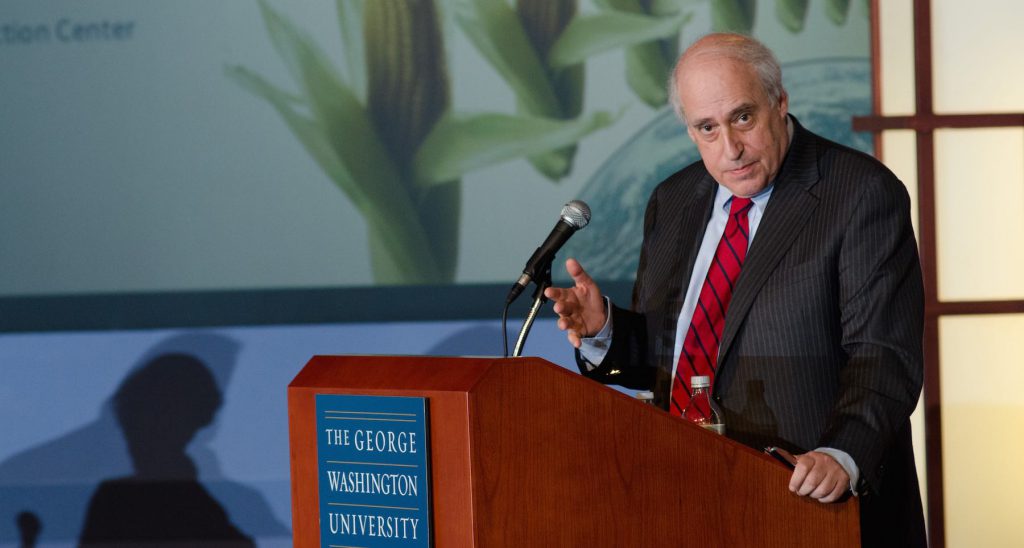
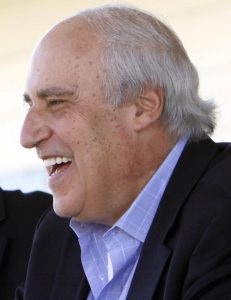 Additionally, Sec. Glickman is the 6th member of the PEW commission on industrial farm animal production that we’ve profiled on Sourcing Matters. The 2007 PEW commission report was a study of the Impact of Industrial (US) Farm Animal Production on issues of public health, environment, animal welfare and social justice. It was a monumental series of reports that has established a new way forward for consumers and the industry to re-introduce values and ethics back into many of the proteins we eat.
Additionally, Sec. Glickman is the 6th member of the PEW commission on industrial farm animal production that we’ve profiled on Sourcing Matters. The 2007 PEW commission report was a study of the Impact of Industrial (US) Farm Animal Production on issues of public health, environment, animal welfare and social justice. It was a monumental series of reports that has established a new way forward for consumers and the industry to re-introduce values and ethics back into many of the proteins we eat.